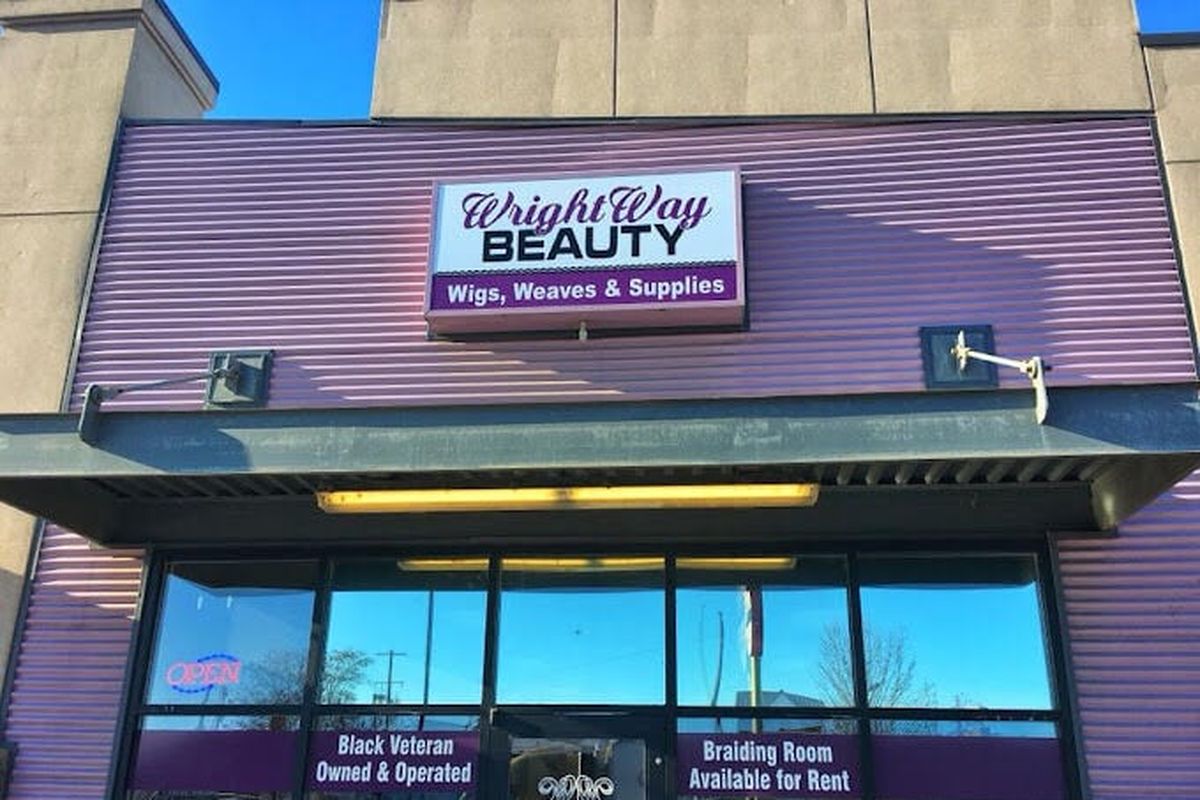For Shania Wright, entrepreneurship wasn’t always the plan – it was the pattern. A military veteran and spouse, Wright found herself launching businesses wherever the Air Force stationed her family. From Alaska to Washington, what began as a side hustle in commercial cleaning evolved into a calling.
“It wasn’t until a friend pointed it out that I realized – yes, I’m an entrepreneur,” Wright says, reflecting on her journey that began with cleaning contracts and grew into community-rooted retail. “I was just trying to solve problems and provide services. I didn’t know that’s what entrepreneurship looked like.”
Today, Wright owns Wright Way Beauty, a Black-owned beauty supply store in Spokane. But the journey to becoming a successful business owner in an industry hostile to Black ownership has not been easy.
The Black beauty supply industry generates billions of dollars each year – much of it from Black consumers. And yet, Black ownership remains startlingly rare. The supply chains are controlled, in large part, by non-Black entities. When Wright first attempted to open accounts with hair vendors, she was met with silence, roadblocks, and refusal.
Many Black beauty supply entrepreneurs find themselves shut out before they even begin. Calls go unanswered. Basic requests – like opening an account – are met with suspicion or excessive demands, such as providing personal identification without explanation. The obstacles often go beyond poor customer service – they reveal a legacy of exclusion embedded in the industry.
Some vendors delay or deny access entirely, creating barriers that stall progress and isolate new business owners. It’s often through word-of-mouth and informal networks that the unspoken rules of the industry are revealed. One experienced store owner in Texas once explained to a newcomer that help rarely comes until a physical storefront is secured – and even then, resistance continues. The message is clear: Access is limited, support is conditional and the playing field is far from level.
The inference is hard to ignore – this is racially based business bullying. Black entrepreneurs are not just navigating a competitive market, they are contending with an industry structure that profits from consumer power while actively obstructing their ownership and growth.
In the Black hair care industry, a widely recognized tactic known as the “choke-out method” has long been used to push Black-owned beauty supply stores out of the market. This strategy involves flooding communities with lower-priced competitors, making it nearly impossible for independent stores to compete. As a result, Black entrepreneurs have been forced to find creative ways to survive and adapt.
Out of this challenging environment, a survival culture of collaboration has emerged. Black business owners have begun banding together – pooling resources, placing bulk orders and sharing supplier information to stay afloat. Despite these efforts, major barriers remain. Some vendors deny Black store owners access to catalogs, while others provide inconsistent pricing. In the face of these inequities, they’ve built a network of mutual support and knowledge-sharing to navigate a system not designed for their success.
The result? Systemic exclusion thrives – benefiting from the steady spending power of Black consumers while continuing to deny them meaningful ownership opportunities.
Despite the lows, Wright’s store has thrived – one relationship, one lesson and one shipment at a time. She credits her resilience to faith, family, and the mentorship of people who genuinely care. Her HR department? A trusted stylist friend who now screens all new hires. Her customer base? Loyal and growing.
“I’m not where I want to be yet, but I’ve come a long way,” she says. “The only reason I have the accounts I do is by the grace of God. This wasn’t strategy – it was favor.”
Wright’s advice for aspiring Black entrepreneurs?
“Don’t pay anyone for information you can learn for free. If you pay someone to help, make sure they’re teaching you how to do it yourself. Start where you are, and don’t compare your beginning to someone else’s middle. And above all, protect your business like it’s your baby – because it is.”
In a market that was never designed to serve or support her, Shania Wright is creating her own playbook – determined to be a light for others navigating from within.
